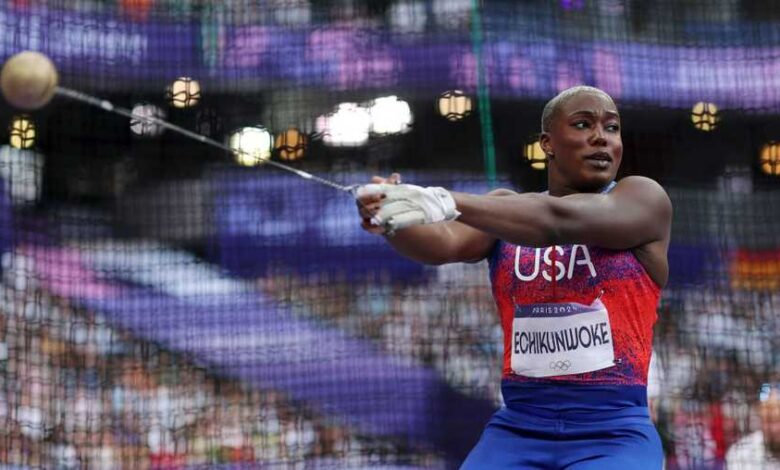Why More African Athletes Will Switch Countries

AfriqueCAN:
The success of African athletes who opted to represent other countries at the 2024 Paris Olympics is fueling debate in Africa’s sports sector.
Experts say underinvestment in sports facilities and talent development pipelines and, in some cases, incompetence by sports authorities, could likely see the trend of young African talent switching nationalities continue unabated, and possibly even rise.
Bahrain’s Winfred Yavi, winner of the 3,000M women’s steeplechase and new Olympic record holder, is one of several athletes at the Paris Olympics who previously represented Kenya. Annette Nneka Echikunwoke, who won a silver medal at the Olympics for her birth country, the USA, previously represented Nigeria in the hammer throw. Echikunwoke chose to represent Nigeria at the last Olympics in Tokyo, but was unable to compete at the games in what she attributed to negligence by Nigeria’s athletic federation. Annette and nine other Nigerian athletes were ruled out of participating after it was established that the Nigerian federation failed to conduct mandatory tests.
In Yavi’s case, she had previously said the stiff competition in Kenya’s middle-distance running scene led her to represent Bahrain despite wanting to represent her home country. But Kenyan athletics coaches have long complained about the lack of adequate facilities and structures to support the development of young athletes in the country.
African athletes also regularly face off with sports federations across the continent over matters including poor facilities, inadequate preparation, logistics, and compensation. A few months ahead of this year’s Olympics some of Kenya’s top athletes threatened to boycott national trials over the questionable choice of facilities.
Several countries also often offer greater financial incentives for athletes compared to their African home nations, including significant medal bonuses. Kazakhstan, whose contingent in Paris includes ex-Kenyan runners, for example pays a gold medal bonus of $250,000. For perspective, Kenya offered gold medal winners in the 2020 Tokyo Olympics around $8,000 as a bonus.
“The switching of nationalities has been happening for years, and unless African countries provide improved conditions for athletes to succeed at home it will continue,” Brian Koskei, a Nairobi-based athletics business consultant, told Semafor Africa. “Switching nationalities will become even more attractive as many nations including the Gulf states are pumping millions of dollars into their sports industries,” he predicted.
And it’s also about demographics. With Africa producing by far the youngest populations on average it is easy to see how there might be a surplus of up and coming sporting talent for better resourced countries to take a chance on.





